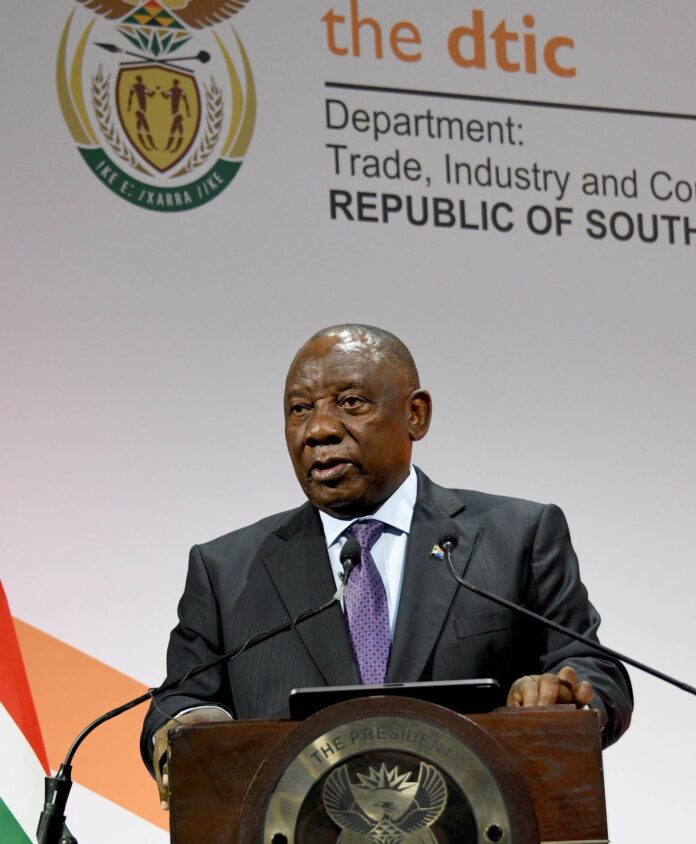The Department of Trade, Industry and Competition has revealed that more than 500,000 workers in South Africa own shares in the companies they work for.
According to a study done by the department, one in every 20 workers in the formal private sector owns a stake in their employer’s company.
President Cyril Ramaphosa, who was speaking at the inaugural worker share ownership conference at the Sandton Convention Centre in Johannesburg on Tuesday, quoted the study.
Labour minister, business and industry bodies in attendance
The conference was attended by the Minister of Trade, Industry, and Competition, Ebrahim Patel, and representatives of labour, business, and industry bodies.
“We are creating a new class of worker-owners across the country. And these are not just managers. They are mineworkers, who are now amongst the owners of our country’s vast mineral wealth,” said the president.
”They are workers in garment and auto manufacturing industries, who are now amongst the owners of factories. These are workers in the agricultural sector, who are part-owners of the land they farm.
“They are workers in food and beverage, hospitality, energy, transportation and logistics. Also IT, financial services, telecoms, and many other sectors. These are the Tintswalos, the children of democracy. [They] are striving to give effect to the words of the Freedom Charter. That ‘the people shall share in the country’s wealth’. That is why this conference is so important.”
Broad-Based Black Economic Empowerment Act
Ramaphosa lauded the introduction of the Broad-Based Black Economic Empowerment Act 20 years ago. He has allowed the government to improve working conditions for workers.
“Working with our social partners, we have introduced labour legislation to foster sound labour relations. This also ensures decent working conditions for all. We have pursued policies to foster entrepreneurship and empower black South Africans in the economy.
“Yet, despite the measures successive democratic administrations have introduced to transform patterns of ownership in the economy, we still have much more to do.
“Worker share ownership schemes are valuable instruments to broaden ownership and, with time, to enable greater control of the economy. Also known as Employee Share Ownership Programmes, these schemes are underpinned by the BBBEE Act. Together with the Competition Act, the Companies Act and others,” he said.
Ramaphosa added that worker ownership must translate into black economic empowerment.
Best practice funding and dividend policies
“Moving forward, we will need to address key issues such as developing best practice funding and dividend policies. Also enhancing governance structures. Worker ownership must transcend black economic empowerment. It must be a mechanism for wider economic inclusion.
“We need to expand the reach and impact of employee share ownership programmes, strengthen legislative and regulatory frameworks. Also foster greater collaboration with stakeholders. We should seize this opportunity to create networks and enable knowledge-sharing and improve the impact and reach of existing worker ownership structures.
“By championing worker ownership, we are building a future where every employee has a stake in the success of their company. Where innovation flourishes, and where prosperity is shared by all,” said Ramaphosa.



